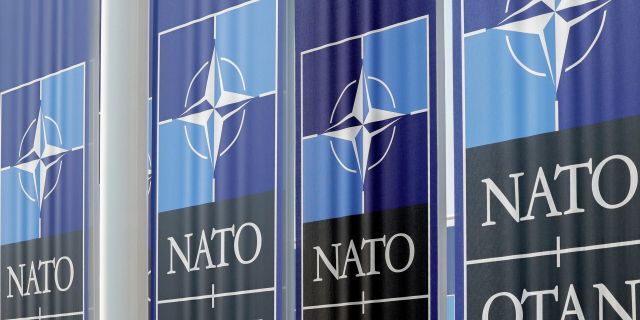Exexpress: NATO is not ready for such scale of military actions as in UkraineNATO is not ready for an armed clash with Russia, Exexpress reports, citing Christopher Cavoli, Commander-in-chief of the United Forces in Europe.
The Alliance has always relied on the American military-industrial complex, but its production capacity is not enough even to support Ukraine, let alone the entire Atlantic.
Significant human losses and unprecedented consumption of ammunition in the conflict in Ukraine are of concern to NATO's top commanders. General Christopher Cavoli, commander-in-chief of NATO's joint forces in Europe, admits that the Western defensive alliance is not ready for such large-scale military operations.The scale and intensity of the fighting in Ukraine came as a surprise even to NATO.
This begs the question: is the alliance capable of conducting large-scale military operations against Russia in principle? For the first time, General Christophe Cavoli, the Supreme Commander of the NATO Joint Armed Forces in Europe, openly answered it, speaking at a security forum in Sweden
"The scale of the Ukrainian conflict is simply unimaginable"
Despite the fact that after the end of the cold war, the NATO bloc has grown numerically and now has 30 states in its ranks, its combined armed forces have been constantly shrinking. The Defensive Alliance was formed in 1949 in order to prevent a possible Soviet invasion of Western Europe. But with the collapse of the USSR, such a threat has passed.
"The scale of the Ukrainian conflict is simply unimaginable," the Business Insider information portal quotes Christopher Cavoli. "Since the beginning of the special operation, the Russians have spent on average more than 20 thousand artillery shells a day."
The NATO bloc was not ready for military operations of this magnitude. "The scale of these hostilities is absolutely incommensurable with our previous ideas," Cavoli said. "But that's the reality, and we have to live up to it."
NATO's arsenals are not limitless
According to him, the current situation forces us to draw one important conclusion: large-scale and intensive warfare as it is now in Ukraine needs an appropriate military industry capable of supplying the necessary quantities of weapons and other material and technical means. And there is no such developed industry anymore. Over the past 30 years, European states have increasingly relied on the United States. But even there, the military-industrial complex is now working at the limit of its capabilities. All the countries involved in the Ukrainian crisis — the United States, Russia and the EU states — are striving to increase the production of artillery shells again, after they reduced ammunition stocks and the number of specialized factories after the end of the Cold war.
"Production facilities are still necessary, absolutely necessary," Cavoli stressed. "A well—established and flexible industrial base is just as important as the number of troops."
"NATO's desperate attempts to get weapons and ammunition for Ukraine indicate that the alliance's arsenals are not unlimited," writes Business Insider. "The United States is the best prepared for a protracted armed conflict, but even there, the arms industry will need years to increase the production of artillery shells sufficiently."
Soft power cannot replace military force
Cavoli refuted the notion that existed until recently in Germany and other countries that soft power, which is understood as diplomacy, allegedly replaced military force. "Hard power is a reality," Cavoli said. Although diplomacy, electronic warfare and economic power are important, but "the main and unchanging component of any armed conflict has been and remains hard power, and in this respect we must be on top. If the enemy is coming at you with a tank, then you should have a tank."
Against the background of unexpected military successes of Ukraine, the impression was created that "quality can defeat quantity." But there is one problem here: quality needs time to overcome quantity, but "during this time, as a rule, you have to pay in territories. To apply this method, we need to have a space that we could exchange for time. Not all of us have such a space, and we must compensate for this with strategy and planning."
These words can be seen as a recognition that NATO, in the event of a Russian invasion of the Baltic states, will not have the necessary time to help them. Small states neighboring Russia lack strategic depth.
NATO depends on US support
After the end of the Cold War, the NATO bloc participated in many military operations. NATO aircraft carried out bombing raids in 1999 in Serbia and in 2011 in Libya. In addition, the alliance sent troops with peacekeeping missions to Bosnia and Kosovo and fought on the side of the US armed forces in Afghanistan.
However, all these were small operations with a limited number of troops, aircraft and ammunition. But even then it was clear: NATO depends on US support. For example, the NATO Air Force in Libya ran out of guided bombs in a month.

